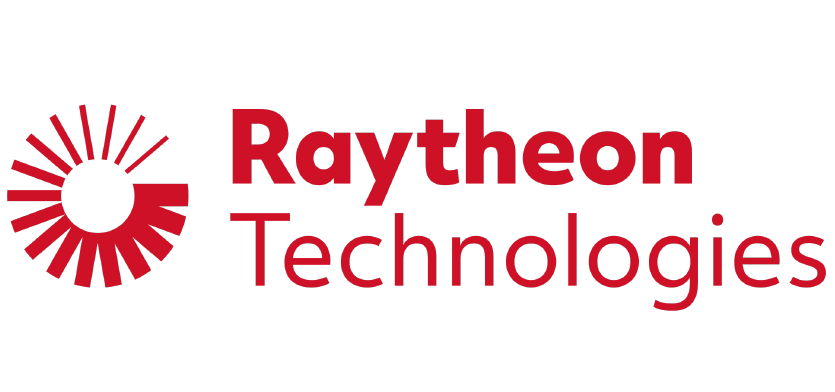Certified Security Operations and Incident Specialist (CSOIS)
February 28, 2025 2025-07-15 19:03Certified Security Operations and Incident Specialist (CSOIS)




Certified Security Operations & Incident Specialist | SOC Analyst Course | Security Operations Certification Training
The learners will develop hands on hand to detect SIEM and splunk implementation, data onboarding, log analysis and real -world security phenomena. Additionally, the course includes systems hardening, configuration audit and vulnerability management, which use devices such as Nessus and Hardening. Cyber forensic and accident investigation plays an important role in the event, enabling participants using devices such as memory and disc forensic, root detection, and forensic artifact analysis. The course ends with the study of the real -world case, practice on hands and a complete event response workflow, ensuring that the learners can effectively apply their skills in real -world safety functions.

Master Security Operations Center & Incident Response
Why Join Certified Security Operations & Incident Specialist (CSOIS) ?
Industry-Relevant Skills
Hands-On Learning
Expert Training
High Demand
Comprehensive Curriculum
Real-World Simulations
Cyber Forensics Specialization
Certification
Growing Industry
Cutting-Edge Tools
SOC Operations Mastery
MITRE ATTACK & Threat Intelligence
Upcoming Batch:-
19th January 2025 (10pm to 1 am )
1st of February 2025 (10 pm to 1 am)
Certified Security Operations & Incident Specialist (CSOIS) Overview
The Certified Security Operations and Incident Handling Specialist (CSOIS) program provides intensive knowledge and expertise on cyber safety operations, events and forensic examinations. Participants will learn the incident, firewall configuration, infiltration detection and patch management. The program includes SOC architecture, IOCs, IOAs, TTPs using the MITRE ATT&CK, and experience on hands with SIEM tools such as splunk. Students will gain proficiency in strict, vulnerable scanning and cyber forensic, including students memory and disc analysis. Through the study of the real -world case and practical laboratories, this program equips professionals with the skills required for SOC operations, event reaction and digital forensic roles in cyber security.
ENROLL NOW & BOOK YOUR SEAT AT FLAT 50% WAIVER ON FEE
Batch Schedule
| Batch | Batch Type |
|---|---|
| Online Live Instructor Led Session | Full-Time |
| Online Live Instructor Led Session | Part-Time |
Regional Timings
| Region | Time |
|---|---|
| IST (India Standard Time) | 09:00 PM – 12:00 AM |
| Bahrain, Qatar, Kuwait, Saudi Arabia | 06:30 PM – 09:30 PM |
| UAE / Oman | 07:30 PM – 09:00 PM |
Talk to our Corporate training advisor
Certified Security Operations & Incident Specialist (CSOIS) Objectives
Why Learn Certified Security Operations & Incident Specialist (CSOIS) ?
In today’s rapidly evolving cybersecurity landscape, organizations face an increasing number of cyber threats, making security operations and incident handling critical skills for professionals. This course provides hands-on expertise in detecting, analyzing, and mitigating security incidents while strengthening an organization’s defense mechanisms. By learning this course, participants will gain practical knowledge of firewalls, intrusion detection and prevention systems, network security, and security incident response processes.
With a strong focus on Security Operations Centers (SOC), SIEM tools like Splunk, and real-world security analytics, this course prepares individuals for high-demand roles in cybersecurity. Additionally, the inclusion of cyber forensics, rootkit detection, and system hardening ensures a comprehensive understanding of post incident investigation and proactive security measures. Whether you are an aspiring security analyst, SOC professional, or cybersecurity specialist, this course provides the essential skills needed to secure networks, investigate cyber incidents, and enhance overall security resilience.
Growing Demand for Cybersecurity Experts:
Real-World Relevance:
Comprehensive Skill Set:
Career Opportunities:
Practical Experience:
Program Advantages
Certified Security Operations & Incident Specialist (CSOIS) Certification



Certified Security Operations & Incident Specialist (CSOIS) Learning Path/Curriculum
Detection, analysis, and response to security incidents
SOC architecture, tools like SIEM, firewall configurations, and IDS/IPS
Digital evidence collection, rootkit detection, memory and disk forensics
Indicators of compromise, attack tactics (MITRE ATT&CK), and threat hunting
Hands-on with Splunk, Nessus, FTK Imager, and other security solutions
Scanning, patching, and securing systems
Case studies and simulated security breach scenarios.
Certified Security Operations & Incident Specialist (CSOIS) Skills Covered
Certified Security Operations & Incident Specialist (CSOIS) Tools Covered













Certified Security Operations & Incident Specialist (CSOIS) Program Benefits
Incident Response Mastery
Learn structured response and mitigation
techniques.
Hands-On Training
Work with tools like Splunk, Cisco IOS, and FTK Imager.
Threat Detection
Identify IOCs and IOAs to counter cyber threats.
SOC Management
Understand SOC roles, architecture, and operations.
SIEM Expertise
Master Splunk and real-time security analysis.
Malware & Rootkit Detection
Detect and mitigate hidden threats.
Cyber Forensics
Investigate incidents and preserve digital evidence.
Vulnerability Management
Use Nessus for scanning and risk mitigation.
Real-World Simulations
Apply knowledge in breach scenarios.
Certification & Career Growth
Earn credentials for advanced security roles.
System Hardening
Secure systems with best practices.
Career Readiness
Prepare for roles like SOC Analyst & Incident Responder.

Career Opportunities after this course
Projects that you will Work On
Practice Essential Tools
Designed By Industry Experts
Get Real-world Experience
1. Wi-Fi Network Penetration Testing
Objective: Assess the security of Wi-Fi networks by identifying and exploiting potential vulnerabilities.
Tools: Aircrack-ng, Wireshark, Kali Linux
Learning Outcomes: Understand wireless encryption protocols, perform packet sniffing, and secure wireless networks.
Resource: GUVI Blog on Ethical Hacking Projects
2. SQL Injection Testing
Objective: Detect and exploit SQL injection vulnerabilities in web applications.
Tools: SQLmap, Burp Suite, OWASP Juice Shop
Learning Outcomes: Learn SQL injection techniques and implement best practices to secure apps.
Resource: GUVI Blog on Ethical Hacking Projects
3. Creating a Keylogger
Objective: Develop a keylogger to understand malicious software operation.
Tools: Python, Pynput library
Learning Outcomes: Build malware for educational purposes and learn detection techniques.
Resource: GUVI Blog on Ethical Hacking Projects
4. Network Sniffing with Wireshark
Objective: Capture and analyze network traffic for vulnerabilities.
Tools: Wireshark
Learning Outcomes: Learn protocol analysis and identify suspicious activities.
Resource: GUVI Blog on Ethical Hacking Projects
5. Penetration Testing on a Virtual Machine
Objective: Simulate attacks in a virtual environment.
Tools: Kali Linux, Metasploit, VirtualBox/VMware
Learning Outcomes: Hands-on experience with testing tools and documenting findings.
Resource: GUVI Blog on Ethical Hacking Projects
6. Creating a Simple Firewall
Objective: Develop a basic firewall to control network traffic.
Tools: Python, Scapy library
Learning Outcomes: Filter network traffic and prevent common attacks.
Resource: GUVI Blog on Ethical Hacking Projects
7. Social Engineering Simulation
Objective: Simulate social engineering attacks and develop user education strategies.
Tools: Social-Engineer Toolkit (SET)
Learning Outcomes: Craft phishing scenarios and understand human vulnerabilities.
Resource: GUVI Blog on Ethical Hacking Projects
8. IoT Security Analysis
Objective: Secure IoT devices by identifying vulnerabilities.
Tools: Shodan, Wireshark, Firmware tools
Learning Outcomes: Secure firmware and understand IoT attack surfaces.
Resource: GUVI Blog on Ethical Hacking Projects
9. Intrusion Detection System (IDS)
Objective: Monitor traffic and logs to detect cyber threats.
Tools: Snort, Suricata, Security Onion
Learning Outcomes: Network log analysis and real-time threat detection.
Resource: Internshala Trainings Blog
10. Blockchain Security
Objective: Develop secure blockchain apps and smart contracts.
Tools: Ethereum, Solidity, OpenZeppelin
Learning Outcomes: Secure DApps and implement safe consensus mechanisms.
Resource: Internshala Trainings Blog
Salary Expectation after completion of the course
Job Obligation after this course
Companies Hiring for this course

























































Program Advisors
IITs
IIMs
NITs
IITs
Pre-requisites
Eligibility Criteria
Batch Professional Profiles
Data Analyst
Statistician
Machine Learning Engineer
Deep Learning Engineer
Data Scientist
Python Developer
Program Advisors
IITs
IIMs
NITs
Experts from the IT Industries.
Admission Details
The application process consists of three simple steps. An offer of admission will be made to selected candidates based on the feedback from the interview panel. The selected candidates will be notified over email and phone, and they can block their seats through the payment of the admission fee.

Course Fees & Financing
Payment Partners
We partnered with financing companies to provide competitive finance option at 0% interest rate with no hidden costs






Upcoming Batches/Program Cohorts
| Batch | Date | Time | Batch Type |
|---|---|---|---|
| Online Live Instructor Led Session | 5th April 2025 | 10:00 AM | Full-Time |
| Online Live Instructor Led Session | 29th March 2025 | 02:00 PM | Part-Time |
Comparison with Others
| Feature | Certified Security Operations & Incident Specialist (CSOIS) | Other Security Courses | |
|---|---|---|---|
| Comprehensive Curriculum | Covers Security Operations, Incident Handling, SIEM, Forensics, and more | Often focuses on only one or two aspects of security | |
| Real-World Tools & Practical | Hands-on training with tools like Splunk, Nessus, Rkhunter, FTK Imager | Limited or no hands-on exposure to real-world tools | |
| Incident Response Lifecycle | In-depth coverage of the full incident response lifecycle from detection to recovery | Basic coverage, lacks detailed incident handling stages | |
| Cyber Forensics | Includes digital forensics, rootkit detection, and evidence handling | Minimal to no focus on forensics | |
| SIEM Implementation | Full implementation and analysis using Splunk | Often lacks practical SIEM setup and analysis | |
| Expert Trainers | Led by industry experts with years of practical experience | Trainers may have limited industry experience | |
| Post-Course Support | Ongoing support and mentorship for career development | Limited or no post-course support | |
| Industry Recognition | Recognized by top cybersecurity organizations and employers | May lack industry certification or recognition | |
| Tailored for Career Growth | Focused on career progression with skills that directly align with current job market needs | Generic content that may not align with specific career goals | |
| Interactive Learning | Interactive lessons with real-life scenarios, case studies, and practical exercises | Passive learning, often relying on lectures or theory |
Self Assessments
Certified Security Operations and Incident Handling Specialist (CSOIS) Training Faqs
Mid-level: 15-30 lakhs per annum
Senior-level: 30+ lakhs per annum
INR Fee(Inclusive of GST) : INR 342,199.00
USD Fee: 3475(subject to be change)










